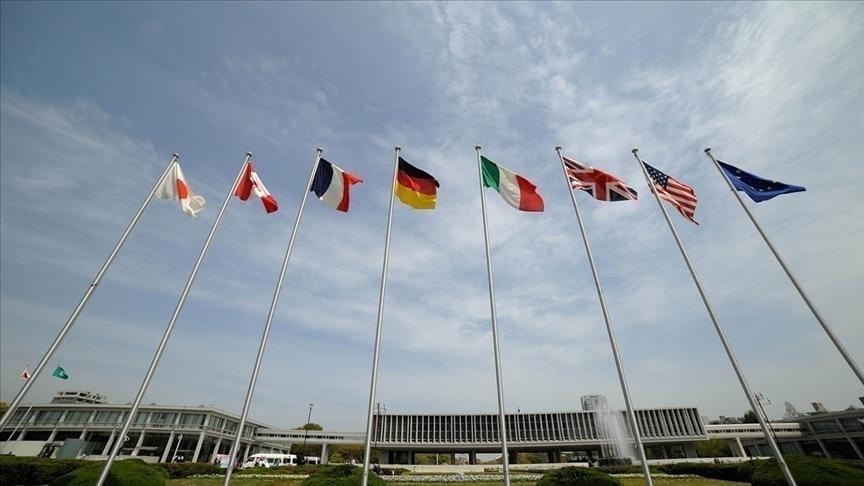ISTANBUL
The top diplomats of G-7 nations Monday discussed cooperation with international partners, and the Ukraine war, among other issues, during a summit of their foreign ministers in Japan.
Yoshimasa Hayashi, Japan’s foreign minister and host of the summit, said it is Tokyo’s priority to “enhance engagement with international partners through the active contributions of the G7 to various global challenges.”
He added that the international community is “at history’s turning point,” expressing Japan’s “intention to resolutely demonstrate to the world the G-7’s strong determination to firmly reject unilateral attempts to change the status quo by force.”
Japan is the current chair of G-7 and a bullet train took an hour to bring the foreign ministers of the world’s seven advanced nations to the resort town of Karuizawa in central Japan on Sunday, for a three-day summit until Tuesday. A representative of the EU is also attending the meetings.
The town is on high alert, with police personnel strolling around the meeting venue that will host representatives from Britain, Canada, France, Germany, Italy, Japan, and the US, plus the EU.
A summit of the leaders of G-7 nations is scheduled to take place in Hiroshima next month.
On engaging with international partners, Hayashi told his G-7 colleagues on Monday: “When doing so, it is important to fully consider the individual circumstances of each international partner and, rather than imposing values on them, to demonstrate the significance of a free and open international order based on the rule of law.”
A statement from Japan’s Foreign Ministry said the top diplomats of the G-7 nations “shared the view to cooperate closely in responding to the issues of energy and food security facing the world.”
Regularize discussions, strengthen cooperation with ASEAN, Pacific Island nations
Hayashi also referred to Russia’s ongoing war on Ukraine and “its threats of the use of nuclear weapons.”
Calling for upholding “international order based on the rule of law,” Japan’s top diplomat said: “With the emerging and developing countries known as the ‘Global South’ facing a variety of issues, the G-7 intends to work together with them to tackle these issues.”
The ministry statement said the G-7 foreign ministers discussed regularizing discussions and strengthening cooperation with the Association of Southeast Asian Nations (ASEAN) and the Pacific Island countries.
Extending support to the centrality and unity of the ASEAN, Hayashi called for medium- and long-term cooperation with the regional bloc of 10 nations.
During their second day of the summit, the G-7 top diplomats nearly spent 100 minutes — most among the issues on agenda — on “open exchange of views regarding the situation in Ukraine including an assessment of the current status and future prospects,” the ministry statement said.
“Amidst the protracted war, it is important to maintain unity among the G-7 and other like-minded countries, to continue severe sanctions against Russia and strong support for Ukraine, and to strengthen cooperation with countries, including the Global South,” Hayashi said.
“The G-7 Foreign Ministers confirmed that they remain committed to intensifying, fully coordinating and enforcing sanctions against Russia, as well as to continuing strong support for Ukraine,” the statement added.
Calling on Moscow to withdraw all forces and equipment from Ukraine “immediately and unconditionally,” the G-7 foreign ministers “reaffirmed that Russia’s irresponsible nuclear rhetoric is unacceptable.”
“They concurred into reinforcing coordination to prevent and respond to evasion of sanctions as well as third party weapon supply to Russia,” they added.

